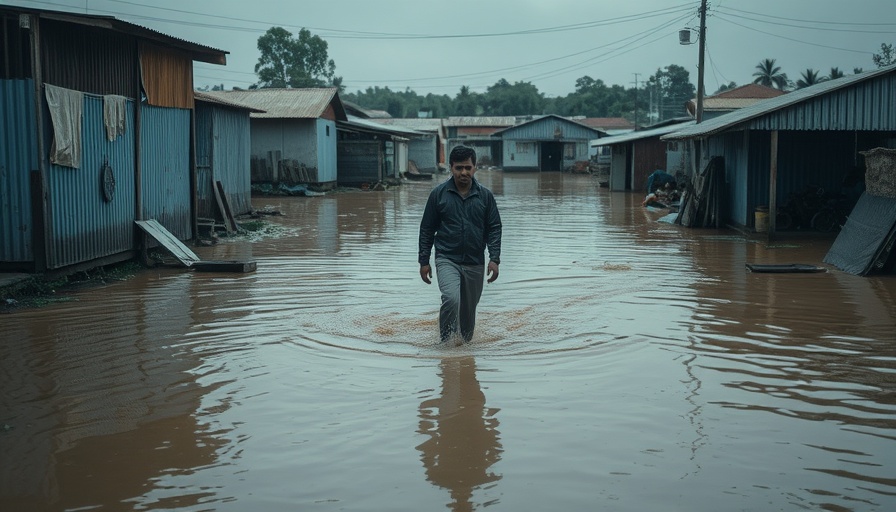
Flood Crisis Overview: Cape Town Faces Dire Humanitarian Needs
As Cape Town grapples with the aftermath of severe rainfall, the crisis affecting nearly 3,000 homes underscores the urgent humanitarian need in the city. Over 7,000 individuals are now receiving aid, with many left vulnerable as the South African Weather Service warns of further rainfall set to exacerbate already grim conditions. In these challenging times, charitable organizations have stepped up, providing hot meals and essential supplies as residents face the dual threats of flooding and inclement weather.
Community Resilience Amidst Natural Disasters
Organizations such as the Mustadafin Foundation and Meals on Wheels are currently providing vital assistance, demonstrating remarkable community resilience in the face of adversity. Charlotte Powell, City spokesperson, highlighted the alignment of local NGOs with government efforts, showcasing the effectiveness of public-private partnerships in disaster situations. This response not only addresses immediate needs but also lays the groundwork for long-term recovery efforts amidst Cape Town's ongoing challenges, such as economic instability and climate change. It calls attention to how governments can leverage non-profits during crises for broader social impact.
The Intersection of Climate Change and Urban Planning
The current flood crisis in Cape Town provides a stark reminder of the intersection between climate change and urban planning policies. The city's infrastructure has been criticized for its inability to withstand extreme weather events. As South Africa faces recurrent floods, the need for sustainable development and effective urban planning becomes crucial. Insights from climate advocates emphasize the importance of investing in climate-resilient infrastructure to protect vulnerable communities and enhance social equality. These climate policies should not only address immediate disasters but also anticipate long-term environmental shifts transitioning Cape Town towards a more sustainable future.
Political Accountability and Future Predictions
The ongoing crisis brings to the forefront the political accountability of local and national governments in South Africa, particularly regarding disaster preparedness and response. As flood damage escalates, questions on government policies concerning environmental management and infrastructure investment will become increasingly pertinent. There are calls for greater transparency and proactive measures, especially as the nation heads towards national elections, where these issues may dominate the political discourse. Looking ahead, if the government does not adopt forward-thinking strategies, the impacts of climate change could exacerbate social inequalities and economic challenges.
Implications for Social Justice and Economic Recovery
As Cape Town deals with the immediate needs of those affected by the floods, the implications for social justice and economic recovery are significant. The crisis is highlighting the entrenched inequalities that pervade society, particularly evident in how different communities respond to such disasters. Policies that promote equitable infrastructure development and economic opportunities for marginalized groups are essential in fostering resilience against future disasters.
Actionable Insights for Stakeholders
Stakeholders, including local businesses, government officials, and civil society, must collaborate to create actionable insights that address the dual crises of flooding and ongoing socio-economic challenges in South Africa. This includes advocacy for policies that prioritize environmental conservation and equitable access to resources. Furthermore, reinforcing community networks can empower residents in times of need and bolster their capacity to thrive amidst adversity.
Emotional Impact of Natural Disasters on Communities
Natural disasters such as the flooding in Cape Town often leave emotional scars—grief, anxiety, and displacement affect individuals and families alike. The support systems provided by NGOs not only help with material needs but also bring emotional solace. As residents navigate the aftermath, understanding the psychological toll of these disasters is crucial for effective community mental health strategies.
 Add Row
Add Row  Add
Add 




Write A Comment